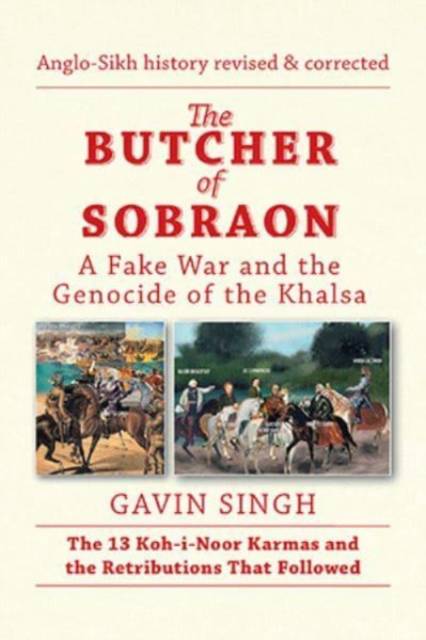
- Afhalen na 1 uur in een winkel met voorraad
- Gratis thuislevering in België vanaf € 30
- Ruim aanbod met 7 miljoen producten
- Afhalen na 1 uur in een winkel met voorraad
- Gratis thuislevering in België vanaf € 30
- Ruim aanbod met 7 miljoen producten
Zoeken
€ 89,45
+ 178 punten
Omschrijving
'The Butcher of Sobraon' - Challenging the Myths of the British in India The history of the British colonisation of the Punjab is a disturbing story of the most appalling atrocities, the most obscene contraventions of fundamental human rights and the theft and pillaging of a great nation. Under the auspices of spreading the word of God and the fake premise of helping to educate an ignorant, backwards nation, British aristocrats committed the kind of sins which fit uncomfortably in the same bracket as Hitler, as Ivan the Terrible, as Pol Pot, Stalin or Saddam Hussein. In this rampagjng work, Gavin Singh tells it as it was. There is none of the romanticism of costume dramas glorifying the Raj; none of the false nobility of white suited British Gentlemen defeating ignorance and the climate to make the Punjab a sunnier Britain. Improving the world before taking tiffin is as much as a myth as the idea that the Punjab was a backwards nation. Singh describes a State rich in wealth and resources, self sufficient and led by an inclusive Maharaja years ahead of his time. He explains how that Maharaja, Ranjit Singh, the Lion of the Punjab, led his nation to a period of Camelot. How he overcame the war lords of neighbouring Afghanistan to bring peace and power to his nation. How he was helped by the great warrior queen, Rani Sada Kaur and how, as his reign ended his nation fell into chaos. Indeed, it is not just the imperialists who have the light of truth shone upon them. Singh shows how the great Sada Kaur turned when she saw her legacy begin to crumble; how the Maharaja Ranjit Singh was driven by short termism - how even while the Punjab was enjoying the greatest period of its history, turbulence was growing beneath the bejewelled surface of the nation.
Specificaties
Betrokkenen
- Auteur(s):
- Uitgeverij:
Inhoud
- Aantal bladzijden:
- 708
- Taal:
- Engels
Eigenschappen
- Productcode (EAN):
- 9781664113879
- Verschijningsdatum:
- 21/12/2020
- Uitvoering:
- Hardcover
- Formaat:
- Genaaid
- Afmetingen:
- 152 mm x 229 mm
- Gewicht:
- 1183 g

Alleen bij Standaard Boekhandel
+ 178 punten op je klantenkaart van Standaard Boekhandel
Beoordelingen
We publiceren alleen reviews die voldoen aan de voorwaarden voor reviews. Bekijk onze voorwaarden voor reviews.











